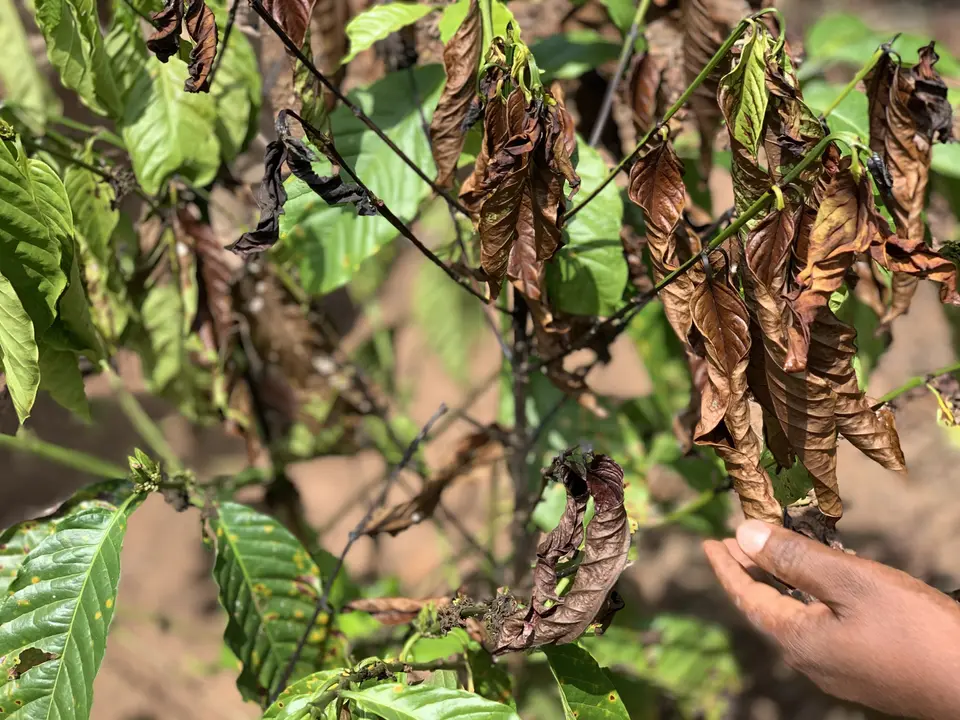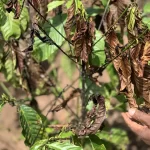Climate change, driven by human activities such as deforestation and the burning of fossil fuels, is a global crisis with far-reaching consequences. One of the industries feeling the effects most acutely is coffee production. In this article, we’ll explore how climate change is affecting coffee production worldwide and delve into why Uganda’s coffee sector is particularly vulnerable. We’ll also discuss the specific impacts of climate change on coffee in Uganda, its repercussions for farmers, and the adaptation strategies being employed.
What is Climate Change?
Climate change refers to long-term shifts in temperature, precipitation, and weather patterns on Earth. These changes are primarily caused by the increase in greenhouse gases in the atmosphere, trapping heat and leading to global warming. Climate change disrupts ecosystems, weather patterns, and livelihoods, with far-reaching consequences for agriculture.
How is Climate Change Affecting Coffee Production Worldwide?
Coffee is sensitive to changes in temperature and rainfall, making it particularly vulnerable to climate change. Across the world, coffee-producing regions are experiencing:
- Rising Temperatures: Increased temperatures can lead to heat stress for coffee plants, affecting flowering and bean development.
- Erratic Rainfall Patterns: Unpredictable rainfall can disrupt the coffee-growing cycle, leading to poor flowering and reduced yields.
- Pests and Diseases: Warmer temperatures create favorable conditions for pests and diseases that can devastate coffee crops.
- Reduced Yields: The combination of these factors often leads to decreased coffee yields, affecting both quantity and quality.
Why is Uganda’s Coffee Sector Particularly Vulnerable to Climate Change?
Uganda, known as the “Pearl of Africa,” is a significant coffee producer, with coffee playing a vital role in the country’s economy. However, several factors make Uganda’s coffee sector especially susceptible to climate change:
- Geographical Diversity: Uganda’s coffee is grown in a range of altitudes and microclimates, making it sensitive to variations in temperature and rainfall.
- Reliance on Rainfed Agriculture: Many coffee farms in Uganda rely on rainfall for irrigation, leaving them exposed to unpredictable weather patterns.
- Lack of Resources: Smallholder coffee farmers in Uganda often lack the resources and knowledge to implement climate-resilient farming practices.
The Specific Impacts of Climate Change on Coffee Production in Uganda
Increasing Temperatures
Rising temperatures in Uganda can lead to:
- Heat Stress: Coffee plants are sensitive to high temperatures, which can affect flowering and bean development.
- Altered Growing Seasons: Warmer conditions can disrupt the typical coffee-growing seasons, leading to irregular flowering and harvesting.
More Erratic Rainfall Patterns
Unpredictable rainfall patterns result in:
- Droughts: Prolonged dry spells can damage coffee crops, reducing yields and quality.
- Heavy Rainfall: Excessive rainfall can cause soil erosion, leaching of nutrients, and the spread of diseases.
Increased Pests and Diseases
Warmer temperatures provide a conducive environment for:
- Coffee Berry Borer (CBB): This devastating pest thrives in warmer conditions and can destroy coffee cherries.
- Coffee Leaf Rust: The warmer and more humid climate encourages the spread of this fungal disease.
Reduced Coffee Yields
Collectively, these climate-related factors often result in:
- Decreased Yields: Coffee farmers in Uganda experience reduced coffee yields, impacting their incomes and livelihoods.
- Decreased Quality: Quality may also suffer due to irregular ripening and disease pressure.
Impact on Ugandan Coffee Farmers
Economic and Social Impacts
Climate change affects Ugandan coffee farmers in several ways:
- Reduced Incomes: Decreased yields and quality lead to lower incomes for coffee farmers.
- Increased Poverty: Falling incomes can push coffee farmers deeper into poverty.
- Food Insecurity: As coffee production declines, farmers may face food insecurity, particularly if they rely solely on coffee as a cash crop.
- Mass Migration: Climate-induced challenges may force some farmers to migrate to urban areas in search of alternative livelihoods.
Adaptation Strategies
What Are Ugandan Coffee Farmers Doing to Adapt to Climate Change?
Ugandan coffee farmers are implementing various adaptation strategies to mitigate the impacts of climate change:
- Planting More Resilient Coffee Varieties: Farmers are shifting to coffee varieties that are more resilient to temperature fluctuations and diseases.
- Using Shade Trees: Planting shade trees helps protect coffee plants from extreme heat and provides a habitat for natural predators of coffee pests.
- Improving Water Management: Implementing water-saving practices helps coffee farmers cope with irregular rainfall.
- Diversifying Incomes: Some farmers are diversifying into other crops and income sources to reduce their reliance on coffee.
Conclusion
The impact of climate change on coffee production in Uganda is a pressing concern, affecting the livelihoods of countless farmers and the country’s economy as a whole. Supporting Ugandan coffee farmers in adapting to climate change is crucial for ensuring the continued availability of high-quality coffee. As consumers, we can contribute by choosing sustainably sourced coffee and supporting initiatives that promote climate-resilient farming practices.
Additional Sections
The Role of the Ugandan Government
The Ugandan government plays a critical role in supporting coffee farmers in adapting to climate change through policies, incentives, and technical assistance.
The Role of International Organizations
International organizations, such as NGOs and development agencies, collaborate with Ugandan coffee farmers to provide training, resources, and funding for climate adaptation projects.
The Future of Coffee Production in Uganda
The future of coffee production in Uganda depends on the success of climate adaptation efforts and the resilience of coffee farmers in the face of changing environmental conditions.







